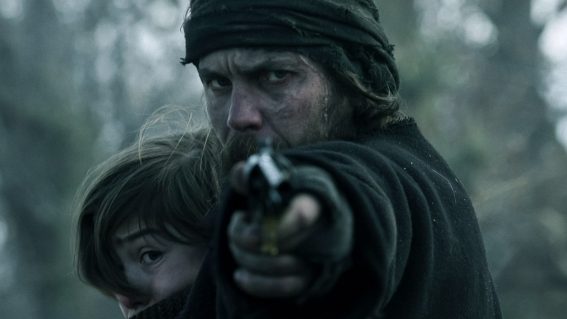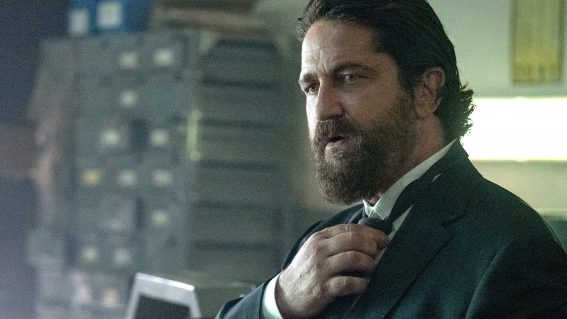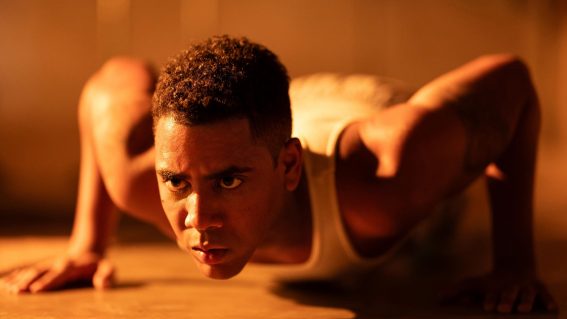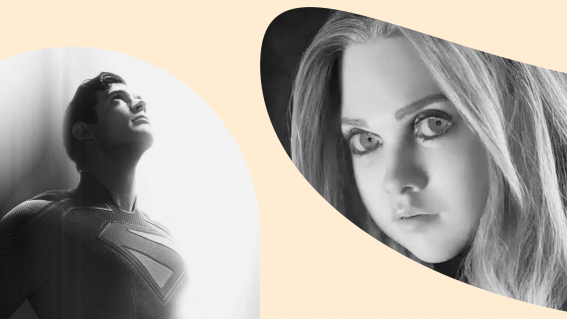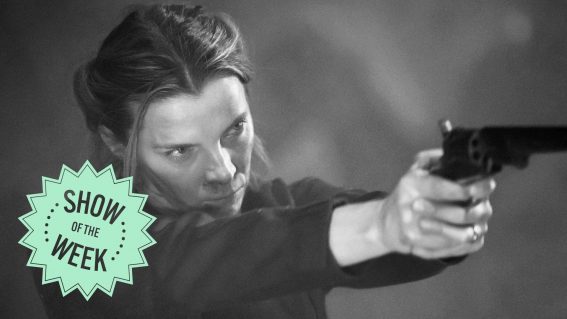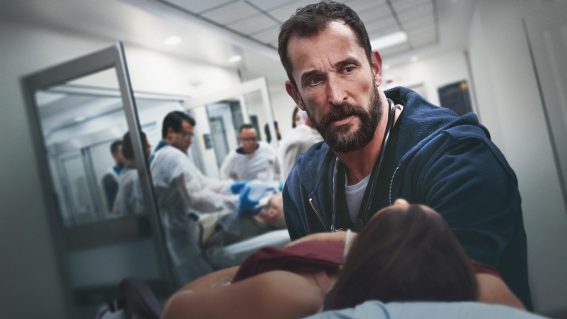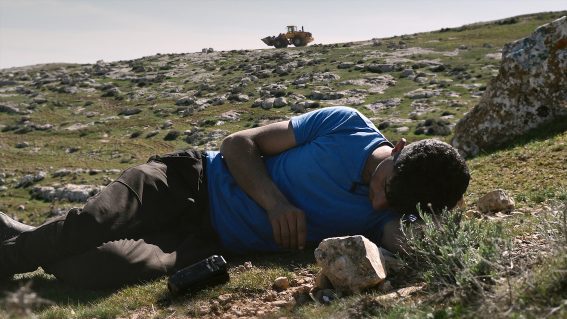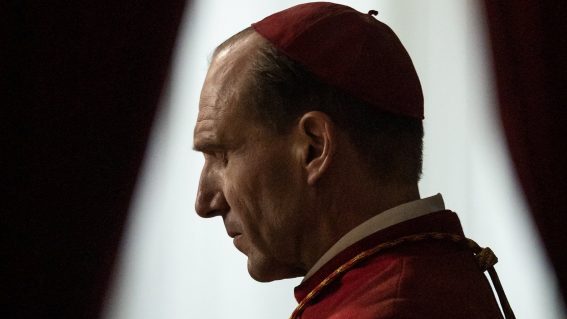The stars and creators of new series Sunny on AI, robots, Drive My Car and more
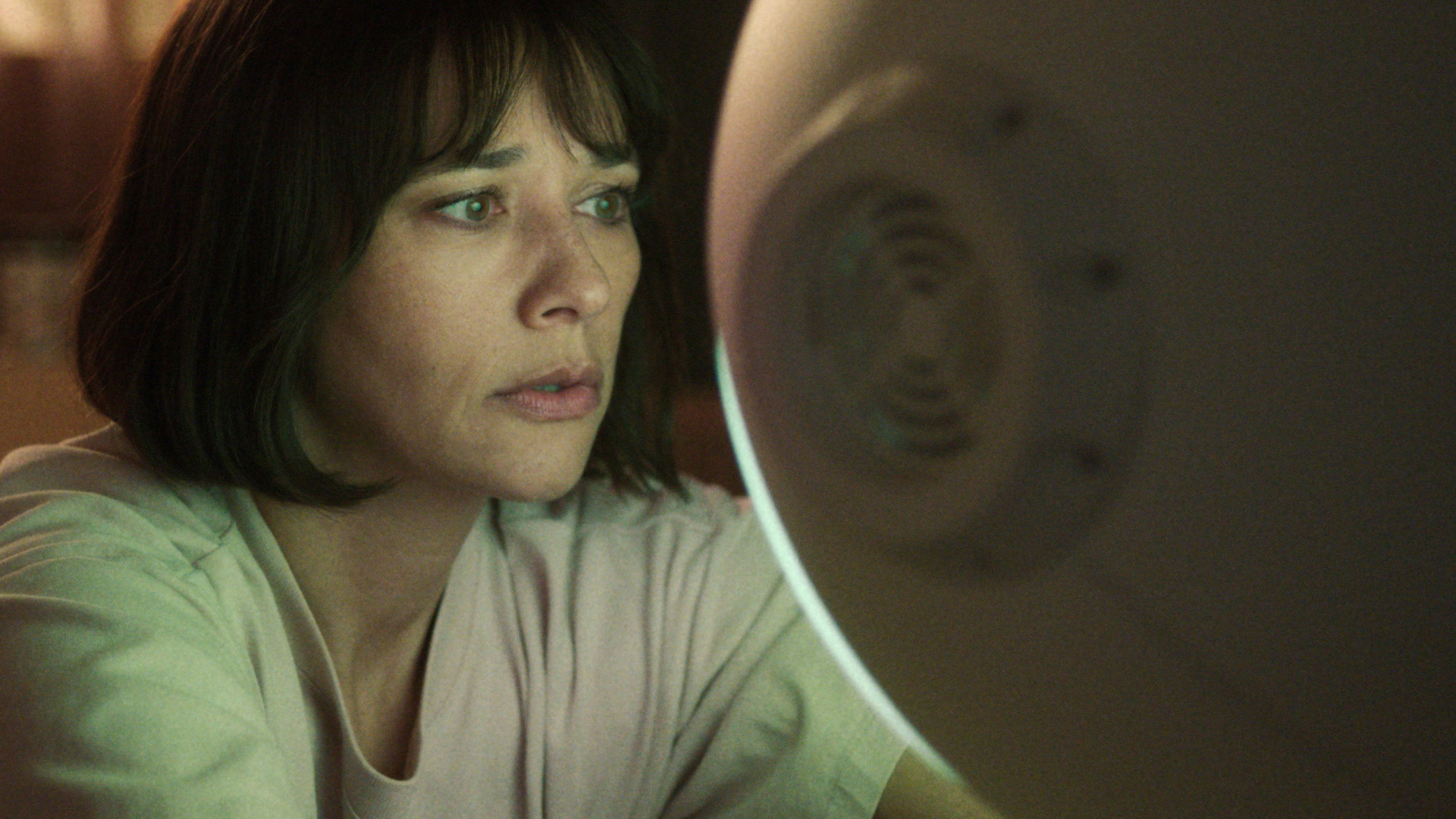
A grieving wife and mother discovers there’s a lot she didn’t know about her husband in new series Sunny, set in near-future Japan. Steve Newall speaks with stars Rashida Jones and Hidetoshi Nishijima, director Lucy Tcherniak and showrunner Katie Robbins.
Set in near-future Japan, new Apple TV+ series Sunny offers an enjoyable mix of mystery, dark comedy and sci-fi. The show follows expat American Suzie Sakamoto, played by Rashida Jones, whose life is upended with news of a tragic accident that’s claimed both her husband Masa (Hidetoshi Nishijima, Drive My Car) and their son. But beyond the many questions that accompany any deceased’s departure are some that Suzie just can’t shake—and revelations about what Masa was really doing at work every day are just the tip of an increasingly slippery iceberg.
Not unrelated to these matters, as Suzie probes deeper into Masa’s world, she’s accompanied by a robot companion named Sunny. This “homebot” arrived right as Suzie’s grief at losing her family did, timing that’s confirmed as suspicious when Suzie is told Masa programmed it especially for her. Not exactly the work of the refrigeration engineer she thought he was…
As the show fills in the couple’s backstory and lets us join Suzie on her amateur sleuthing, the relationship between the grieving widow and her new electronic companion evolves in interesting ways. Particularly since Suzie is neither a fan of artificial intelligence, nor of having her space invaded. Indeed, as we see when her backstory is explored, a quiet and somewhat solitary life is what she’d come to Japan for in the first place (a theme explored by Clarisse Loughrey when her Show of the Week column featured Sunny).
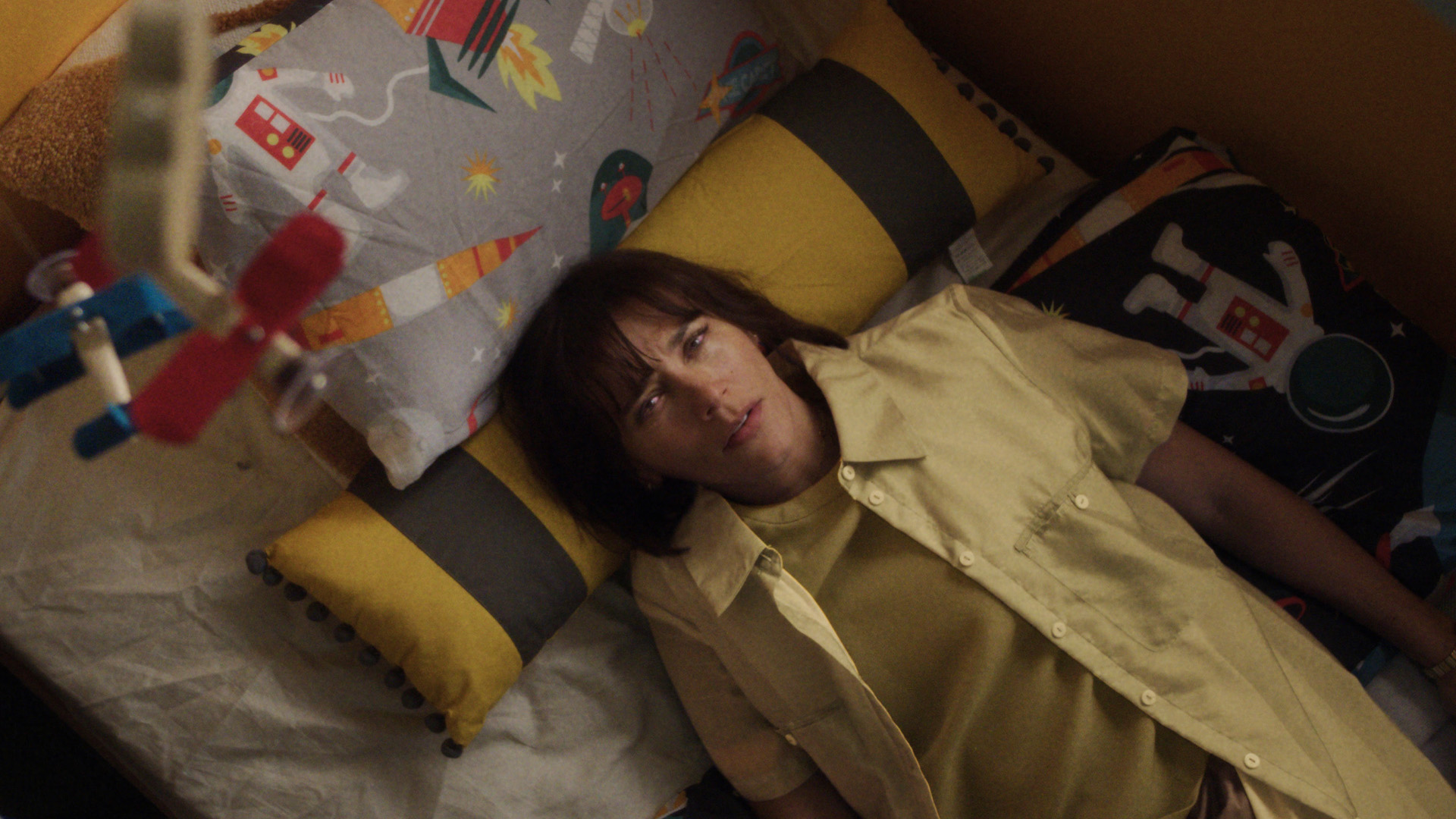
Clearly, Sunny is a show that’s thinking about the potential of technology, its omnipresence, our reliance on it, and the threats it poses. Even in the present day, the intrusion of technology can be a cause for concern. “I’m constantly fighting it,” Rashida Jones tells us. “Does anybody ever say: ‘No, I’m just letting it into every area of my life, unrestricted’ at all times of day?” Some people probably do say that, she acknowledges, but shares that she doesn’t personally feel good about it, and cites the importance of human connection.
“I know it’s inevitable, I know it’s coming,” Jones continues. “I know AI is here and it’s going to impact everybody’s industries, including my own—but I do work hard to try to restrict my own relationship with it to keep it separate for me, I’m not ready to merge yet.”
Jones’ co-star Hidetoshi Nishijima offers a perhaps slightly more positive outlook. “I’m an optimistic person so I believe advancements in technology are a good thing,” he says. “But I want to take it slow. Take some time to embrace it.”
“Because even nowadays, I still play my vinyl record player,” he continues. “I just recently bought a portable cassette tape player—it has been a long while and I’m enjoying that sound. I’m that kind of person. So with new technology, I think there’s always a risk, a danger to it. You have to make a decision about your behaviour, how you cope with it. Otherwise, it’ll infiltrate you. So I think you have to be careful about that and how you handle that.”
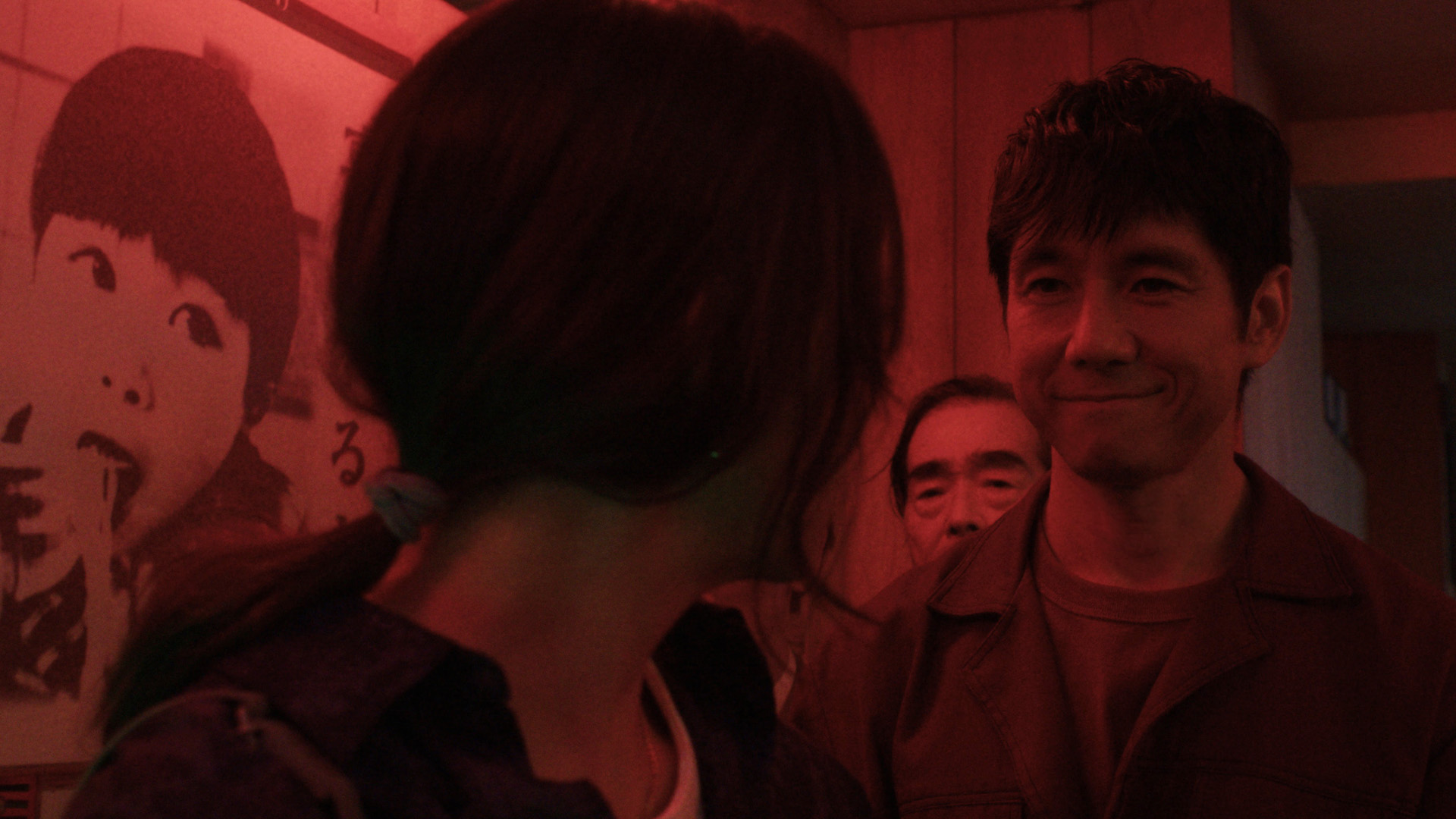
Sunny is a story about human relationships, what human is to begin with and what souls are, Nishijima tells us. “The characters see a soul within the robot, and the robot itself becomes kind of sentient with a kind of soul,” he says. “When you watch this dark comedy, you will probably laugh, and you’ll probably be thrilled by the suspense aspect of it. But ultimately, I think you will be thinking about this very profound story about human souls.”
A crucial element in this is the robot we see onscreen, one that’s brimming with life and personality—and is pretty damn cute. I ask Sunny director Lucy Tcherniak how this robot character came to life on set.
“We really did not want Rashida to be just acting opposite a tennis ball,” Tcherniak explains. In making the relationship feel more authentic to the human actor, the hope was that this would translate onscreen in a way that a CGI character could not.
“So, we worked with Wētā Workshop who created this animatronic robot—robot slash puppet—who was then brought to life by a team of people,” says Tcherniak. Joanna Sotomura, the actress playing Sunny the homebot, was there all the way through shooting, I learn. “She was just off camera, with this headgear on—this technology that sort of worked a little bit like motion capture or like those Apple emojis which she was expressing in real time,” Tcherniak explains. “And that was being translated onto Sunny’s projected face”. Sotomora was miked up and there was a speaker inside Sunny as well. “So for the actors, it was sort of as real as it could be.”
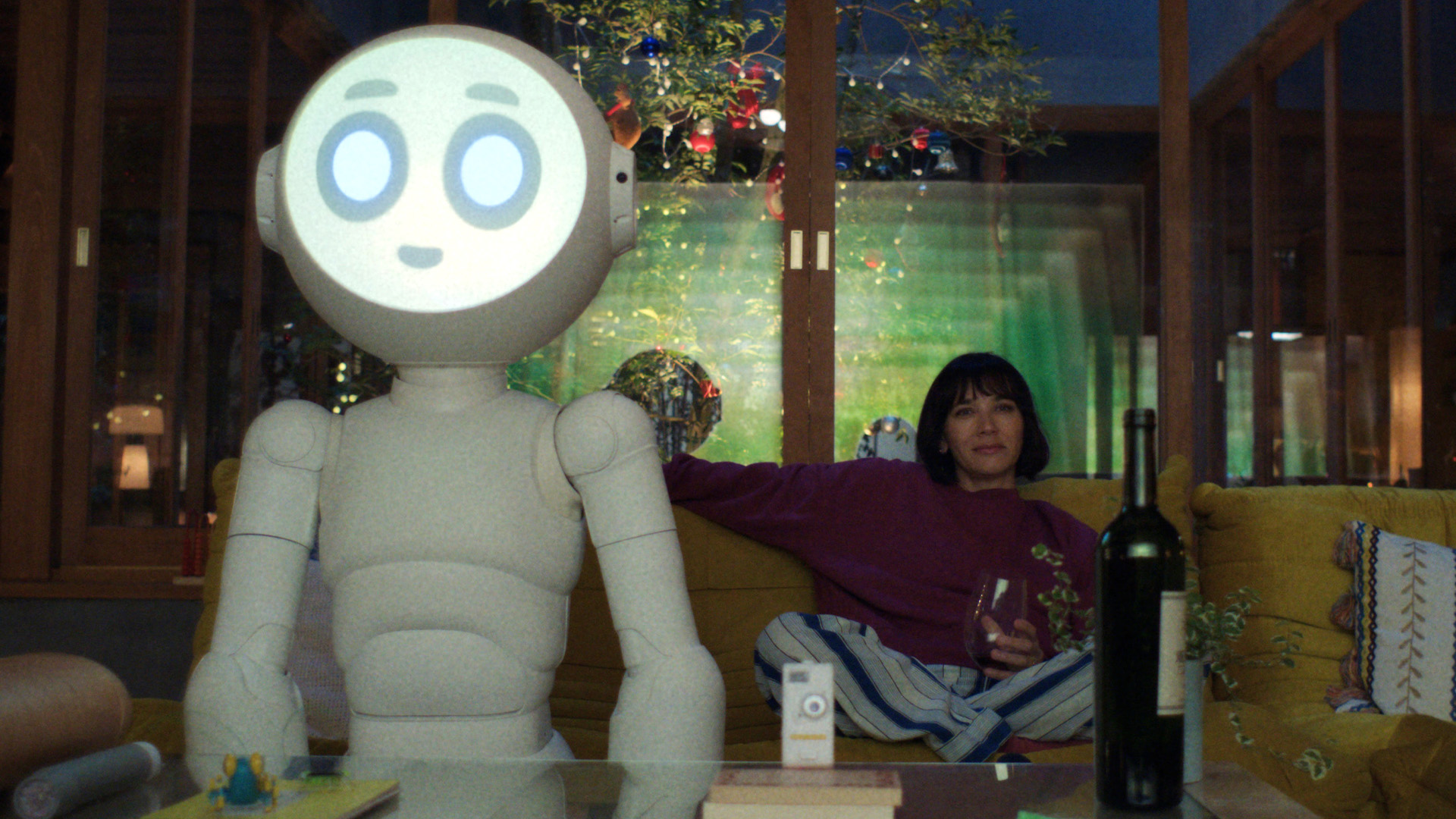
Showrunner Katie Robbins expands a little on what Sotomura’s performance brought to the role of Sunny. “She was so game to do this thing that was incredibly humbling and frustrating, kind of regularly,” Robbins tells us. “She just kept at it and was so patient as we were figuring out the technology.” Sunny has quite an arc over the course of this season, according to Robbins, and with Sotomora’s help they were able to capture a real complexity of emotion that this robot experiences—without having all of tools an actor normally has available.
“And yet, Sunny still has this tremendous nuance that Joanna was able to bring,” Robbins says. “And she was doing that with her voice. And she was doing that with her face. I don’t think that many actors could accomplish what she was able to accomplish with this role. She would make me cry, you know, like multiple times over the course of shooting—I was just wet faced and snotty because of Joanna’s extraordinary performance.”
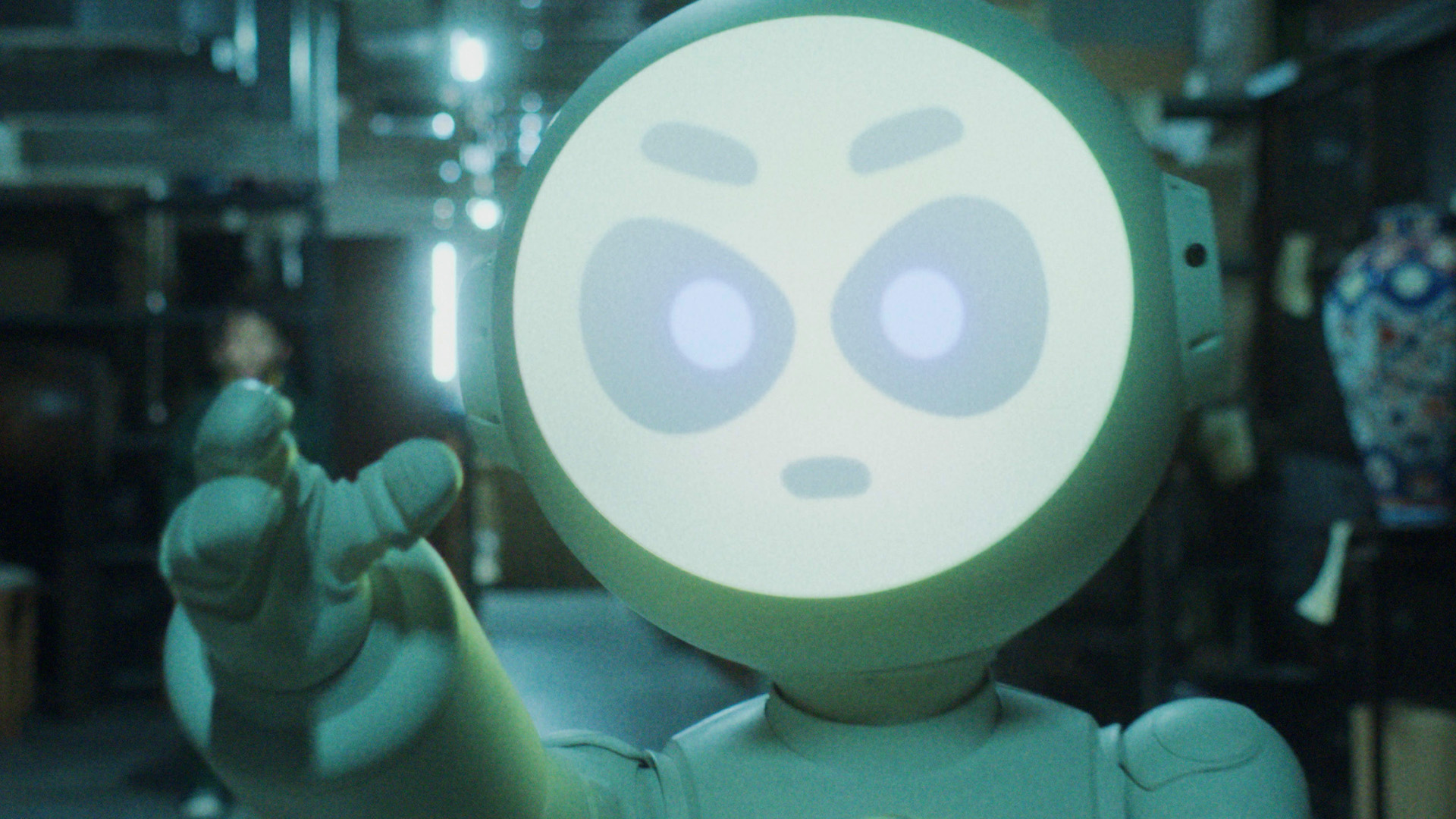
“And also her comic timing is incredible,” adds Tcherniak. “That was one of the benefits of having her there for real. Rashida, or whoever her scene partner was at the time, could be surprised in real time by one take being different from the last. Her comic timing is incredible and the emotional depth that she was able to bring through this crazy technology onto a robot meant we were very lucky to have her.”
I ask Rashida Jones about the first encounter she had with her robotic co-star. “We had a little meet and greet in the robot studio,” she tells me. “She was really rude. No, I’m just kidding!” It was cool, Jones offers, and not like what she’d expected—a little bigger, a little more muscular.
“She was really cute and I immediately felt affectionate towards her,” Jones continues. “I thought some sort of animal part of my brain responded to her cute face, and they had her put her arm around me. I was very easily manipulated into believing this thing was a sentient being very quickly—I asked for a hug! It was embarrassing.”
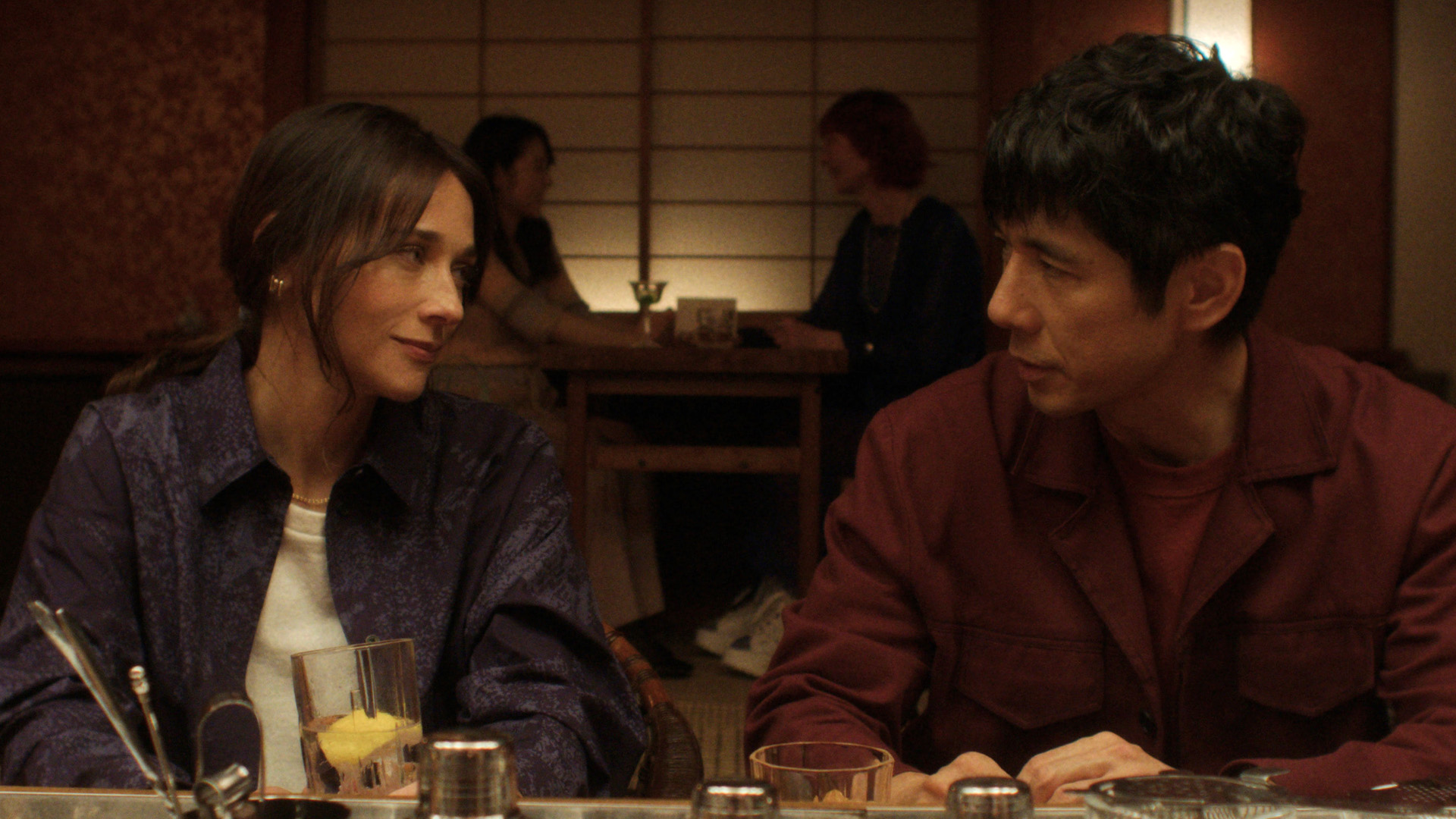
Jones and Nishijima’s relationship commenced with a similarly strong human connection. “We first met on Zoom,” Jones recalls. “But I was very starstruck because I’d just watched Drive My Car, which I absolutely loved.”
“You were so good,” Jones compliments Nishijima, describing his performance in Drive My Car as very serious. “That’s why I was surprised when he was pretty silly and goofy with me right away,” she says. “Oh, thank God!”
“Then we met in person a couple months later and luckily, I didn’t know enough about your reputation to be intimidated by you, which is good. We connected really quickly, it’s something you can’t describe, but we just liked each other.”
Even though they wouldn’t work together on Sunny for another year after this meeting, this connection was evident to Nishijima too. He recalls having seen her performances and knowing that Jones was extremely charming. On Zoom they did a script reading, and Nishijima says “We were already giggling and smiling and we were already connecting. I think she immediately grabbed my heart and I wanted to work with her. When I got to L.A. with Drive My Car, I could feel her talent and passion for this project. And yes, it was a no brainer for me. Above all, it’s her humanity. It’s her big heart and when we were not filming, we were having a great time.”
This interview has been edited for length and clarity.



